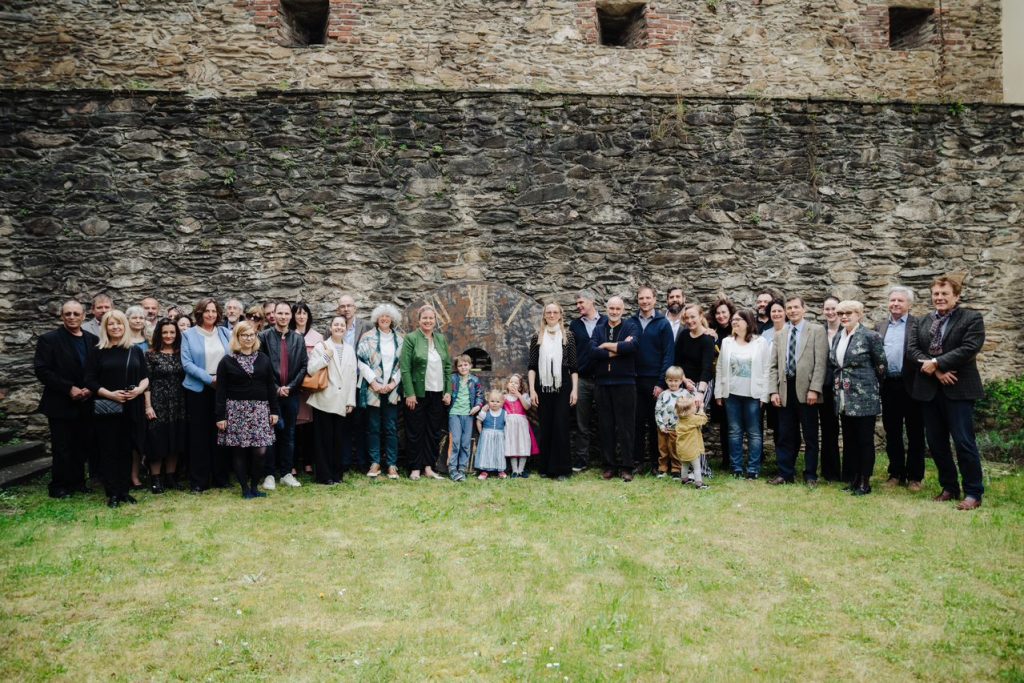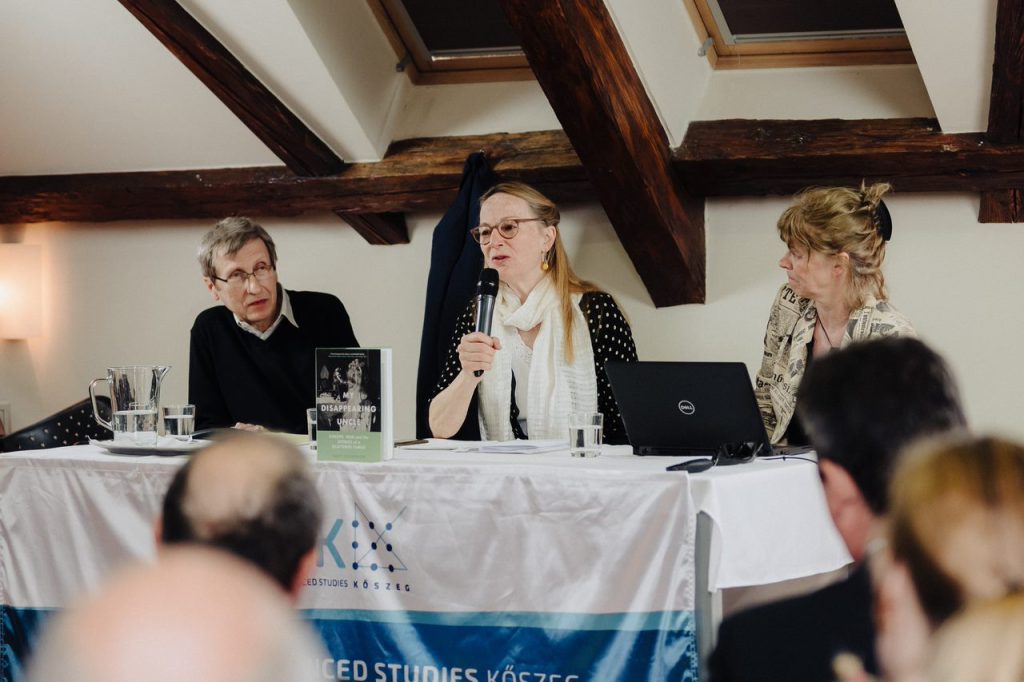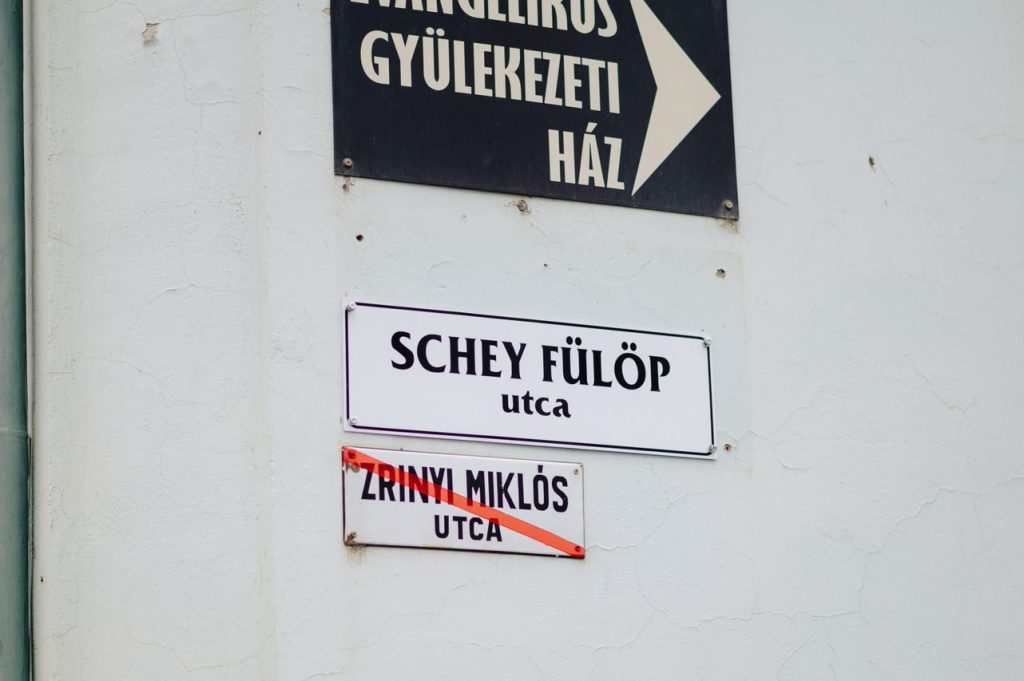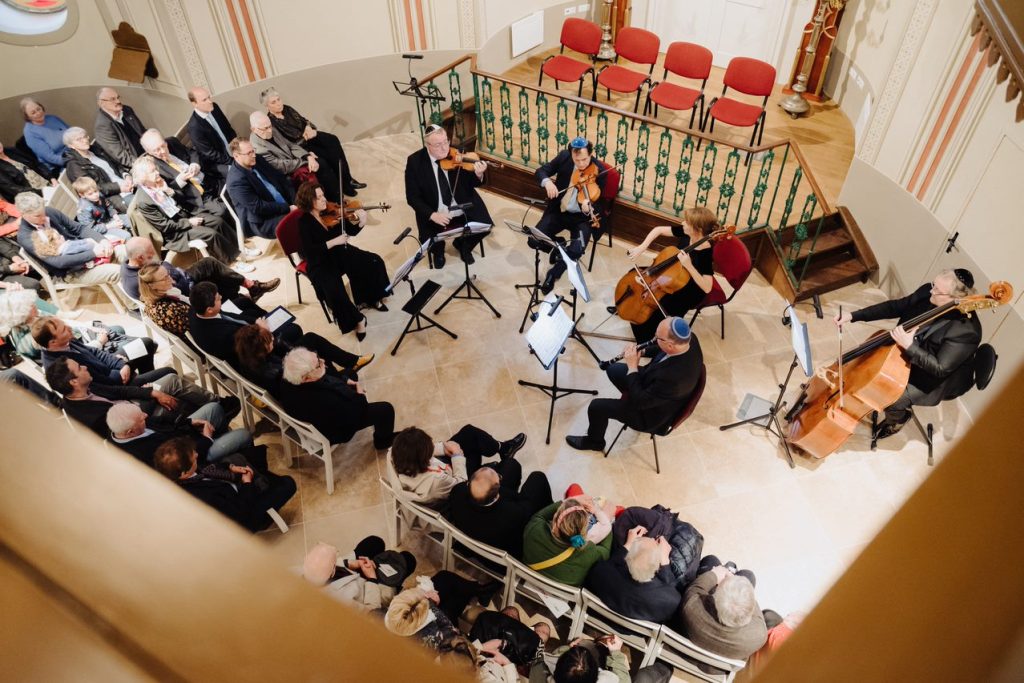Culture & Heritage

Philip Schey Memorial Day, held in Kőszeg, Hungary, was a unique celebration of Jewish cultural heritage and a very special family reunion. Members of the Schey-Ephrussi-de Waal family flew in from all over the world to honour their ancestor, Baron Philip Schey von Koromla and participate in a commemoration event organized jointly by the Kőszeg Municipality and the Institute of Advanced Studies Kőszeg.
Renowned writer and Schey family member Kathy Henderson captivated the audience with a fascinating account of how she discovered and pieced together her family’s history in her latest novel “My Disappearing Uncle.” The event also included a street naming ceremony in which the name of Filip Schey was given back to a beautiful street in Kőszeg. The festivities culminated in a stunning concert by the Budapest Festival Orchestra, held in the newly refurbished Synagogue.

The day began with the launch of Henderson’s novel, which tells the story of her journey to discover her family history and the legacy of her great-great grandfather, Philip Schey. Mónika Mátay and Attila Pók, historians and researchers at iASK, spoke about the book’s significance as a family heirloom, cultural heritage, and historical document. Henderson recounted her first visit to Kőszeg, when she stumbled upon the long-abandoned 19th century synagogue and saw her mother’s maiden name painted on the ceiling. She soon learned that Philip Schey was the man from a mysterious family photo and that he had built the synagogue. “It was astonishing. It was moving. It was heart-breaking”, said Henderson about the dilapidated bur majestic building before her eyes.
During her first visit to Kőszeg, Kathy accidentally met Ferenc Miszlivetz, the Director of iASK, and the rest, as they say is history. The restoration of the Kőszeg synagogue started in 2020 and finished in 2022. It was financed the renovation carried out by VM Construction Fővállalkozó Kft within the framework of the Kraft program of iASK institute that has a track record of preserving Jewish cultural heritage. Today, the Kőszeg Synagogue regularly hosts cultural events such as music performances.
“My Disappearing Uncle” is a unique family story about identity formed from pieces of the past, and the legacy that Schey left behind in Kőszeg. Her novel is indeed, a truly unique family story, in Henderson’s words “the story in which the great-great grandfather of the brown portrait set out to seek his fortune from Güns in the Hungarian part of the Austro-Hungarian Empire had always sounded very exotic, and immeasurably far away, and so did this”.
Fülöp Schey was born in Kőszeg in 1798. His family had originally come from Moravia and settled in Lakompak (now Lackenbach, Austria) on the Esterházy estate. At the age of 18, he married Franciska, but they did not have any children. In 1823, he established his own business and by 1831 was recognized as a 1st class merchant, paying taxes to the town of Kőszeg. Schey had established good business relations with several prominent families, including the Esterházy, Batthyány, and Erdődy families.
Originally employed by the Wertheimstein banking house in Vienna, Schey later became an independent wholesaler and amassed a considerable fortune. He was a founding member of the Kőszeg Savings Bank in 1844 and eventually became its vice president and director. Schey’s fortune grew significantly due to his loyalty to the Habsburg court during the revolution of 1848. Though he ceased his business activities in Kőszeg during the revolt, his wealth continued to increase thanks to the military transports of 1848-49. Despite the enormous war burdens imposed on Kőszeg during this time, Schey remained loyal to the imperial court.
In addition to his success in business, Schey was also known for his philanthropic efforts. He contributed substantial funds to the construction of the Kőszeg Municipal Supply House and the synagogue, among other causes. The Kőszeg House of Representatives presented him with a certificate of thanks in 1854 for his help to the local poor. Schey also played a role in the establishment of the first kindergarten in Hungary, which was named Elisabethinum in honor of Queen Elisabeth, and admitted children regardless of their denomination. In recognition of his contributions, Emperor Franz Joseph elevated Schey to the Austrian nobility in 1859, making him the first Jew to receive this honor. He was granted the title Philipp Schey von Koromla.

In recognition of his philanthropic activities, one of the most beautiful streets in Kőszeg was named after him. The street was renamed after the Second World War and on 2nd May it regained its original name. Together with Kathy Henderson and Ferenc Miszlivetz, Béla Básthy, Mayor of Kőszeg, revealed the new, shiny street plate bearing the name of Philip Schey. “We’re here to remember Philip Schey and to restore his name to the street it was stripped from with the arrival of communism. Was it because the Jews of the town had been sent to their deaths in Auschwitz in 1944 that Philip, himself a Jew, was no longer relevant? Or was it because his loyalty to the Hapsburg Empire made him clearly counter-revolutionary? Maybe both”, said Kathy Henderson in her speech.

The day’s celebrations concluded with a concert by the Budapest Festival Orchestra at the Kőszeg Synagogue, which had been restored through the Kraft program of iASK. The Philip Schey Memorial Day was a moving and meaningful tribute to the Jewish cultural heritage of Kőszeg, and a testament to iASK’s mission of preserving cultural heritage for future generations.
© 2017-2023, All Rights Reserved